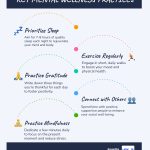This article provides actionable strategies to cultivate a fast mind, helping readers improve mental agility, enhance decision-making, and thrive in a rapidly changing world.
Table of Contents
Introduction
A fast mind is more than just quick thinking; it’s about adaptability, focus, and clarity in decision-making. Whether you’re tackling exams, navigating the corporate world, or striving for mental well-being, cultivating a fast mind can elevate every aspect of your life.
Did you know? Studies show that individuals who consistently train their brains demonstrate higher performance levels in problem-solving and decision-making tasks. The best part? Anyone can bolster their mental agility with the right tools and practices.
This guide will not only unpack the concept of a fast mind but also explore its benefits, proven strategies for development, and real-life success stories. Let’s harness your brain’s full potential together!
What is a Fast Mind?
At its core, a fast mind doesn’t simply mean thinking quickly or reacting faster—it’s the ability to process, analyze, and adapt to information effectively and with clarity.
Dr. Alex Chen, a cognitive psychologist, sums it up beautifully, saying, “Cultivating a fast mind is not just about speed but about the depth of understanding and the ability to quickly adjust to fresh insights—it’s about agility, not merely being active.
Fast Mind vs. Busy Mind vs. Active Mind
To bring this concept to life, it’s helpful to compare:
- A busy mind often feels cluttered and chaotic. It’s similar to a computer overwhelmed by countless open tabs.
- An active mind is engaged and productive but doesn’t necessarily include the adaptability and focus needed for maximum efficiency.
- A fast mind, on the other hand, filters out unnecessary noise, zooms in on what’s important, and delivers actionable insights quickly.
Imagine your mind as a racing car—speed is great, but a fast mind is a car with precision handling, the ability to adapt to sharp turns and obstacles effortlessly.
Why Should You Develop a Fast Mind?
The benefits of cultivating a fast mind extend far beyond efficiency; they ripple into every area of your personal and professional growth.
1. Enhanced Cognitive Abilities and Sharper Focus
Brain training techniques improve memory, attention span, and learning capabilities. For example, students who engage in regular cognitive exercises report faster information retention and better academic performance.
“The brain functions like a muscle, needing consistent stimulation to remain focused and sharp. Training for mental agility is training for a sharper, more efficient mind,” adds Prof. Maria Santos, a neuroscientist.
2. Improved Decision-Making and Problem-Solving Skills
Whether you’re a professional addressing workplace challenges or someone juggling multiple life decisions, a fast mind empowers you to make important choices faster and with more confidence. Leaders in industries ranging from healthcare to tech are increasingly adopting cognitive techniques to boost decision-making speed under tight deadlines.
3. Better Stress Management and Mental Resilience
When challenges arise, a fast mind doesn’t just react—it assesses and adapts. This mental flexibility offers improved emotional regulation, reducing anxiety even in high-pressure situations.
“Quick thinking is essential for thriving in today’s fast-moving world. It’s not about how fast you go, but how well you can keep up,” says Dr. James Lee, a cognitive behavior therapist.
How to Develop a Fast Mind
Anyone can cultivate mental agility by implementing science-backed strategies. Here are actionable ways to start:
1. Practice Mindfulness and Meditation
Mindfulness sharpens focus by training your brain to remain present. Short daily meditation sessions calm a busy mind and improve clarity.
Give this a try: Dedicate 5 minutes each day to deep breathing, concentrating solely on your breath. Over time, extend this to 10-20 minutes and observe how your focus evolves.
2. Engage in Cognitive Exercises
Brain-training games like Sudoku, crossword puzzles, or apps such as Lumosity improve memory and enhance processing speed. Reading diverse content and actively challenging yourself to learn something new daily also keeps your brain sharp.
Pro Tip: Dedicate 15 minutes daily to practicing brain-training activities to reap significant results over months. Small, consistent efforts make a big difference.
3. Adopt Healthy Lifestyle Habits
Optimal brain functionality depends heavily on lifestyle choices. Key habits include:
- Balanced Nutrition: Include brain-boosting foods like nuts, leafy greens, and omega-3-rich fish.
- Regular Exercise: Physical activity promotes better oxygen flow to your brain, which stimulates cognitive function.
- Adequate Sleep: Rest is where magic happens—your brain processes and consolidates information during deep sleep.
Dr. Emily Roberts, a geriatric psychiatrist, highlights that activities enhancing mental agility are not only advantageous but crucial for preserving cognitive health as we grow older.
4. Learn to Prioritize and Filter Information
Don’t overwhelm your mind with unnecessary details. Develop the habit of focusing on critical information, akin to clearing out mental clutter so your brain can concentrate better.
5. Try Visualization Techniques
Athletes often visualize success before stepping onto the field. Use this same technique in your personal or professional life to prepare your brain for challenges and improve confidence.
Real-Life Applications of a Fast Mind
Nothing inspires like real-world examples of transformation. Discover these inspiring success stories to fuel your motivation:
1. Students Boosting Academic Success
Maya, a university student, began meditating and using brain training apps daily. Within three months, her ability to retain course material improved significantly, and she scored in the top percentile of her exams.
2. Professionals Elevating Their Productivity
Alisha, a marketing consultant, used prioritization tools and mindfulness techniques to maintain work-life balance during a daunting project. She not only achieved a major career milestone but also reconnected with her passions outside of work.
3. Mental Health Enthusiasts Discovering Resilience
After adopting a fast-mind framework, John, a mental wellness advocate, managed his anxiety more effectively and began mentoring others on their own mental wellness journeys.
Take the First Step Toward Mental Agility
Developing a quick-thinking mind is not about achieving perfection but rather about making consistent and deliberate improvements. Each step you take empowers you to be sharper, more focused, and resilient in the face of challenges.
Start today by incorporating one or two of the strategies above into your routine. Share your experience, and remember—change happens when you stay curious and consistent.
Dr. Alex Chen sums it up best: “When you cultivate your fast mind, you empower not just your thinking but your entire life.”










